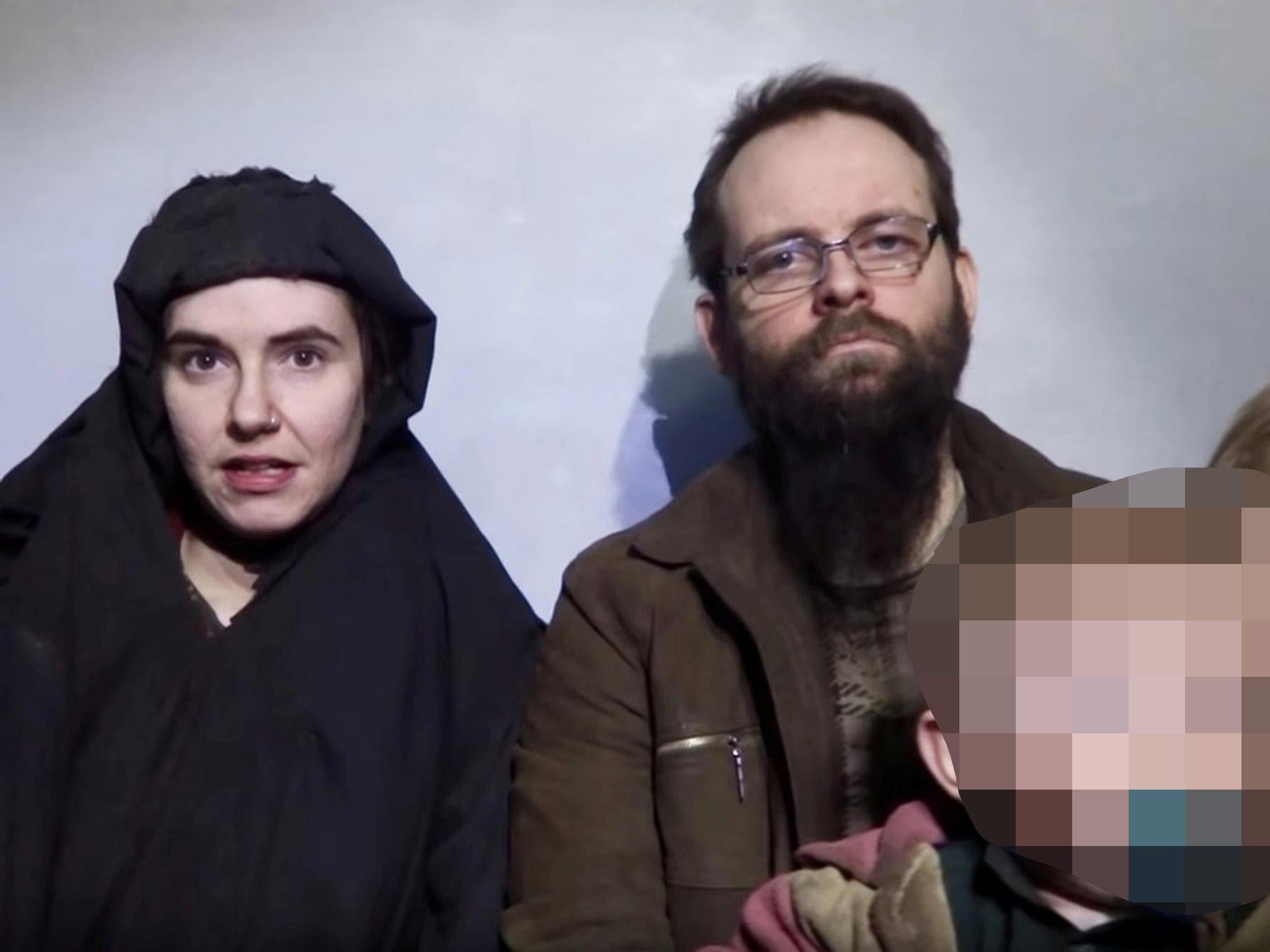American family held hostage by militants in Pakistan were rescued after dramatic car chase
Troops shot the tyres of the vehicle carrying the family in the northwest tribal province

Your support helps us to tell the story
From reproductive rights to climate change to Big Tech, The Independent is on the ground when the story is developing. Whether it's investigating the financials of Elon Musk's pro-Trump PAC or producing our latest documentary, 'The A Word', which shines a light on the American women fighting for reproductive rights, we know how important it is to parse out the facts from the messaging.
At such a critical moment in US history, we need reporters on the ground. Your donation allows us to keep sending journalists to speak to both sides of the story.
The Independent is trusted by Americans across the entire political spectrum. And unlike many other quality news outlets, we choose not to lock Americans out of our reporting and analysis with paywalls. We believe quality journalism should be available to everyone, paid for by those who can afford it.
Your support makes all the difference.New details have emerged of the dramatic rescue of a Canadian-American family held hostage by a Taliban-linked group for more than five years in Pakistan.
The couple – US citizen Caitlan Campbell and Canadian Joshua Boyle – were captured five years ago by the Haqqani network while hiking in the mountains of Afghanistan. Ms Campbell was pregnant at the time, with the couple having three children while they were held hostage.
A senior Pakistani security source said that the family had been saved after a car chase in a northwestern tribal region that borders Afghanistan, with Pakistani army troops shooting the tyres of the vehicle carrying the family leading them to be saved.
The rescue – which also involved US drones hovering in the area – is a rare positive moment for US-Pakistan relations in recent months, with tensions having been raised after President Donald Trump called on the country to do more to stop terrorist groups on its borders. Reports indicated that Mr Boyle had refused to board an American C-130 for a flight to Bagram Air Base in Afghanistan, but the family was said to be on its way back to Canada, flying via London.
Talking about the rescue, the source, who remained unnamed because they were not authorised to speak openly to the media, said: “Our troops fired at the vehicle, and burst its tires.”
Agents had attempted to stop the vehicle, but were forced to shoot when it sped away. A Taliban commander said that the captors were prompted to move their hostages because of the drones flying nearby.
A US Army spokesperson said that the driver of the vehicle and another militant fled on foot to a nearby refugee camp.
While Donald Trump praised the rescue as a “positive moment” for relations between Washington and Islamabad, he also repeated his desire for Pakistan to do more to fight militants in the region.
Pakistani officials, in response such comments, bristled at the idea that they are not doing enough to tackle Islamist militants like the Haqqanis. After the family’s release, they emphasised the importance of cooperation between the two countries to fight militants.
Ms Campbell and Mr Boyle have been described as avid adventurists, having hiked in Latin America before setting their sights on an ambitious trail from Russia through several central Asian countries, and then into Afghanistan. The couple acknowledged in emails to family members that they knew they were going to be in dangerous areas during their 2012 trip.
“They really and truly believed that if people were loved and treated with respect that that would be given back to them in kind,” Linda Boyle, Mr Boyle’s mother, said after their capture. “So as odd it as it may seem to us that they were there, they truly believed with all their heart that if they treated people properly, they would be treated properly.”
Ms Coleman’s father had said that she was suffering from a liver ailment when she was captured, and required medical treatment. The state of her health was not immediately clear.
Following the news of their release, Ms Coleman's father, Jim Coleman, criticised his son-in-law over the 2012 trip. "Taking your pregnant wife to a very dangerous place, to me, and the kind of person I am, is unconscionable," Mr Coleman told ABC News.
Before the rescue, there appeared to have been attempts at negotiations. A video sent in 2014 to the family of Ms Coleman showed that they were both alive, alongside their child. Hostage negotiation experts say that videos showing proof of life are frequently seen as a first step in opening negotiations.
That video was sent soon after the release of the Haqqani network released Sergeant Bowe Bergdahl to the US in exchange for five senior Taliban fighters who were being held in Guantanamo Bay. That prisoner swap was approved by then-President Barack Obama.
Efforts at the time to push Mr Obama to approve a similar swap for Ms Coleman and Mr Boyle were reportedly sidelined, amid infighting between lead organisations.
Join our commenting forum
Join thought-provoking conversations, follow other Independent readers and see their replies
Comments